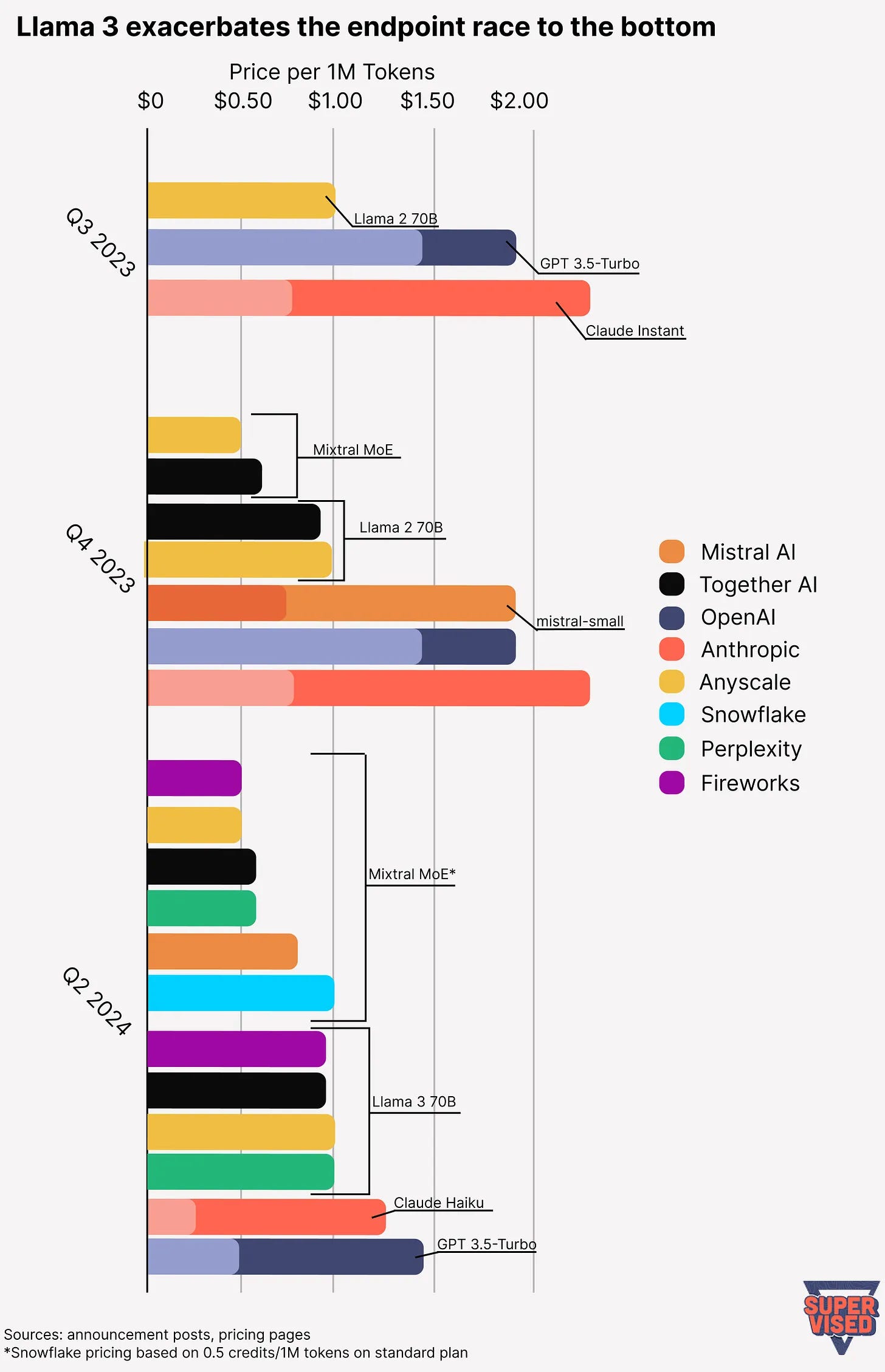A new whisper in the AI analytics room
Informatica, of all companies, is creeping back into conversations despite being a legacy vendor. Plus: what happens when RAG isn't enough?

We have both Snowflake and Databricks’ annual summits coming in the next two weeks with a high volume of events going along with them. As part of that the next few issues will be compressed with multiple topics (like this one) to account for the time sink they are going to cause.
Way too many coding models and a Bring Your Own Key paradigm on the horizon
One extremely popular emerging tool among developers that consistently ends up in the same echelon as Ollama (in terms of how fervent their fans are) is Cursor, an AI-powered developer tool that’s essentially a replacement for VSCode.
There are a lot of reasons Cursor is popular as it heavily streamlines the coding experience with tools like, for example, making a codebase searchable. But there’s another substantial difference when compared to VSCode: its model selection is more open-ended.
And going beyond just a tool itself, Curor it also offers a window into a future workflow scenario for one of the most popular use cases for language models: bring your own key. Rather than relying on a GitHub Copilot integration and living in the Microsoft Extended Coding Universe, you could select the best model for your specific problem—or, maybe at some point, a powerful model run locally.
Cursor allows you to drop in both your OpenAI and Anthropic keys to swap between each during sessions. And, perhaps more importantly, you can override the OpenAI API to configure it for other endpoints, like ones from Together AI. That means developers can pick the best/cheapest/most directly helpful models for their development environment. And it offers an opportunity for other endpoint providers to sneak directly into development environments.
And while GPT-4o, Gemini 1.5, and other top APIs will likely capture the majority of code development usage, Cursor gives open-ish source model providers (as in Meta and Mistral) ways to sneak closer into developer environments. Even the coding model ecosystem continues to grow. Meta released CodeLlama last year, and Mistral this week released its own coding model, Codestral.
And all these endpoints are, of course, a race to the bottom that’s only accelerating. Let’s revisit the pricing chart for the nth time here!
The process within Cursor itself has a few hurdles to set up—you have to have access to an endpoint with an API key in the first place, so it’s not a “click it and get calls” product like GitHub Copilot (though there is a pro option with Cursor tied to GPT-4). It also requires managing a variety of different keys, which could involve jumping between developer accounts.
Right now, Anthropic and OpenAI those are two of the best APIs. But a number of others are quickly catching up based on the LMSys chatbot arena. That includes Llama 3 variations, but it also includes potentially specialized ones like Cohere’s Command-R+.
Cursor effectively offers another avenue for leveling the playing field here. It probably isn’t the last new development tool to exploit that kind of bring-your-own-key approach.
But it also feels like an early sign that another of OpenAI’s biggest advantages—its deep integration with GitHub Copilot—has some signs of vulnerability.
Informatica gets a second look
Earlier this year, The Wall Street Journal reported that Informatica, a legacy vendor for data management, was in advanced talks to be acquired by Salesforce. The Journal reported a little more than a week later that those talks had broken down after being unable to agree on terms.
While that was a very, uh, loud story for Informatica, the reality is the company has come up more and more lately in the context of developments in AI. Or, in particular, Informatica has found a way to tell a story around its potential AI services. At its conference this month it unveiled a suite of updates and integrations—particularly with Snowflake’s AI platform, Cortex.
Informatica is one of many examples of what feels like another growing trend with the emergence of AI tooling for legacy vendors: a second shot at reclaiming ground lost to challenger startups and cloud-native vendors. In the case of Informatica, that’s the modern data stack, which has picked off nearly every part of its business into independent products.
Sponsored
This week’s newsletter is brought to you by Felicis
Felicis has been investing in an impressive variety of AI and infrastructure companies, including: Runway, Weights & Biases, MotherDuck, Supabase, Metaplane, Vannevar Labs, poolside, and Flower Labs. A generalist firm started by Google’s first product manager, Felicis is known for supporting founders with their Founder’s Pledge.
Read what founders say about working with Felicis.




